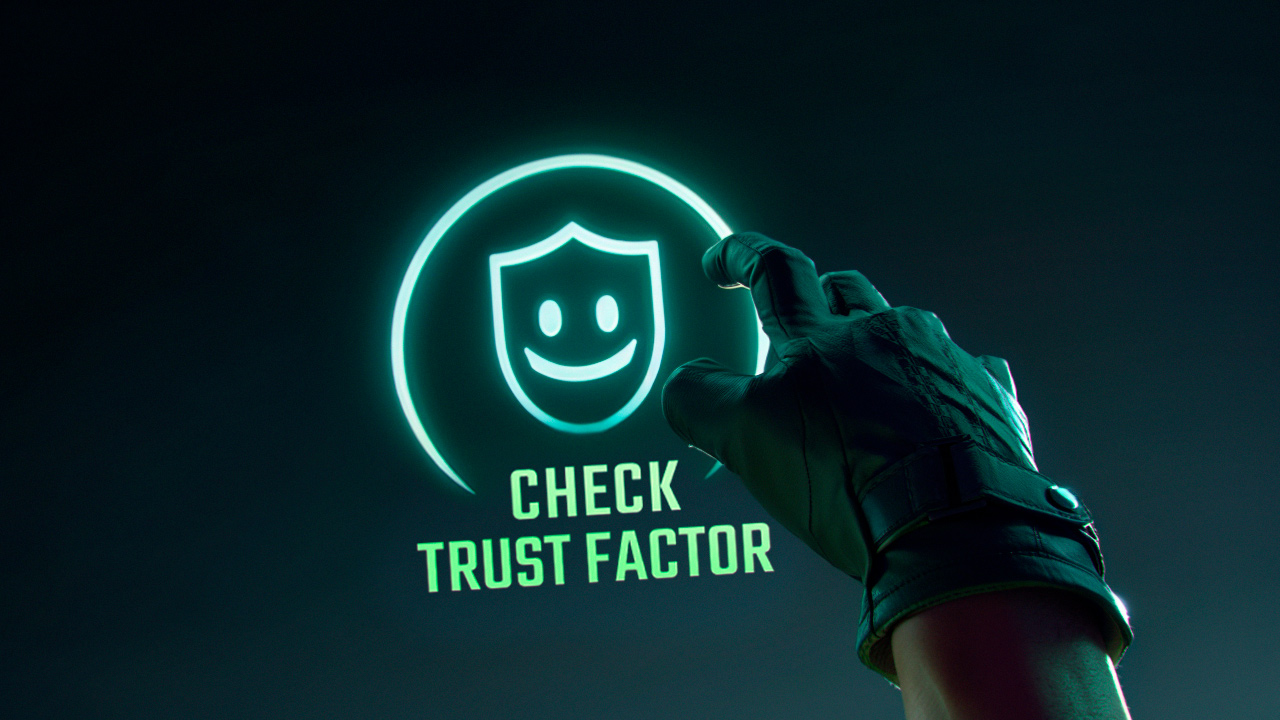When you’re playing CS2, you want to have a fun, smooth gaming experience with players who are just as committed to the game as you are. One of the core elements behind this experience is the trust factor CS2, a system introduced by Valve to ensure fair and enjoyable matchmaking. The trust factor in CS2 plays a crucial role in determining who you get paired with, and it directly impacts the quality of your matches. But what exactly does the CS2 trust factor mean, and how does it work? Valve uses various metrics, including player behavior and match history, to evaluate how trustworthy each player is. A higher trust factor means you’ll be matched with players who are less likely to cheat or grief, while a lower trust factor may cause you to encounter more disruptive players. So, how exactly can you check your CS2 trust factor? And how can you improve it? In this guide we’ll tell you everything you need to know about the Steam trust factor, explaining what it is, how it affects your gameplay, and offering tips on how to increase your trust factor for better matches.
What is the Trust Factor in CS2?
The trust factor CS2 is a matchmaking system implemented by Valve to help ensure that players are matched with others who have a similar reputation in the community. This system aims to reduce negative experiences caused by toxic players, cheaters, or griefers. Essentially, it works by evaluating your behavior and performance in CS2 to determine how likely it is that you’ll participate in a match that enhances the overall gaming environment.
Key Components of Trust Factor:
- Reports: Players who have been reported for bad behavior, such as cheating, griefing, or being generally disruptive, will see their trust factor drop. The more reports a player receives, the worse their trust factor becomes.
- Matchmaking Behavior: Players who consistently drop out of games, abandon matches, or don’t contribute to the team can have their trust factor negatively affected.
- Steam Profile Information: Your profile can influence your trust factor. If your profile is public and looks genuine, it can be an indicator that you are a legitimate player. On the other hand, players who hide their profile or have very little activity may be flagged as suspicious.
- Friends and Communities: Valve also takes your connections on Steam into account. If you’re part of trusted communities or have a positive interaction history with your friends, it can boost your trust factor.
The system is designed to reward positive behavior and discourage actions that harm the community. Players with a higher trust factor will often be matched with others who are respectful, skilled, and cooperative.

How to Check Your Trust Factor in CS2?
To check your Trust Factor in CS2, there isn’t a direct way to view your exact score, as Valve keeps this information hidden. However, there are several indirect methods that can give you a sense of where you stand:
- Matchmaking Experience: If you consistently play with cooperative, skilled teammates, this likely indicates that your Trust Factor is high. On the other hand, if you often find yourself matched with toxic or disruptive players, it’s a sign that your Trust Factor might be lower.
- Feedback from Friends: When you invite friends to your lobby, they might receive a notification regarding your Trust Factor. If they do, it can give you an idea that your Trust Factor is lower than theirs.
- Steam Profile Indicators: Maintaining a public and active Steam profile is also a subtle indicator of a higher Trust Factor. Valve values transparency and activity in the community.
Also read our pro guide on API scam in CS2 and how to avoid it! Learn to protect yourself from CS2 fraud and scams.

Tips to Improve Your CS2 Trust Factor
While there is no direct way to monitor your Trust Factor score, focusing on certain behaviors and taking specific actions can help boost your status in the game. A high Trust Factor is rewarded with better matchmaking, as you’ll be paired with players who are likely to be cooperative and have similar playstyles. Therefore, it’s important to pay attention to how you behave in the game, both in terms of interactions with others and your overall participation in the CS2 community.
- Be Respectful in Matches: Avoid toxic behaviors like griefing, cheating, or bad-mouthing teammates.
- Engage with the Steam Community: Participate in discussions and ensure your profile is public and up-to-date.
- Avoid Cheating: Using cheats or hacks can negatively affect your Trust Factor.
- Play Regularly: Active and consistent playtime boosts your Trust Factor.
- Link Your Phone Number: Adding a phone number to your Steam account increases your trustworthiness.
Keep in mind that it may take time for your Trust Factor to improve, so patience and consistency are key. You may also be interested in our article on what smurfing in CS2 is, why it’s a problem, and learn effective strategies to avoid it and ensure a fair gaming experience for all players.

Boost Your CS2 Trust Factor
The Trust Factor is a critical rating within the CS2 ecosystem, impacting how the system evaluates each player. This assessment directly influences your gaming experience, with a higher Trust Factor providing a shield against potential encounters with cheaters. Remember that a high Trust Factor not only results in better matches, but it also makes the game feel more rewarding and enjoyable because you’re playing with people who are serious about the game and respect good sportsmanship. Still, developing and maintaining a high Trust Factor takes time. A single nice deed will not immediately improve your reputation, but regular positive behavior over time will result in an increase in trustworthiness. The more you play fairly, report harmful players, and participate in the community, the more likely you are to be paired with other high-trust players who will improve your overall experience. The more you invest in making the game better for everyone, the better your matches will be!
















































![kyousuke CS2 Settings: Full Guide [2025]](https://skin.club/community/wp-content/uploads/2025/08/Main-x-Name.jpg.webp)






